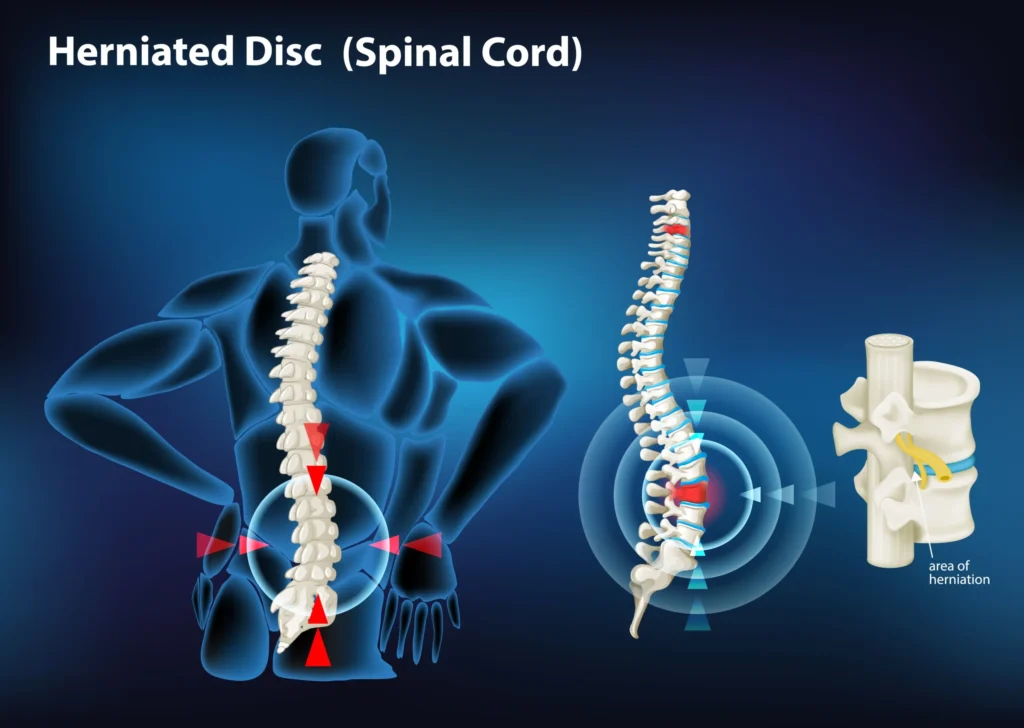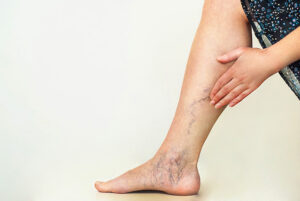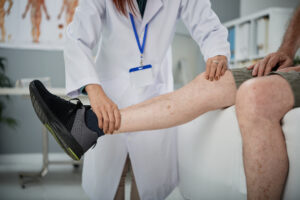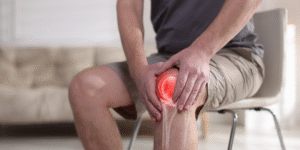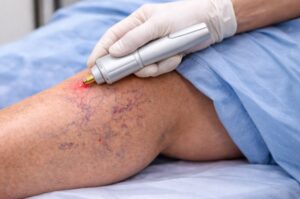Introduction
Herniated discs often bring to mind images of surgery and long recovery periods. Yet, advancements in understanding this condition have opened new doors to natural healing methods. This article delves into these methods, offering hope and alternatives to those suffering.
What Is a Herniated Disc?
A herniated disc, also known as a slipped or ruptured disc, occurs when a disc’s nucleus pulposus, the soft, gel-like center, protrudes through a tear in the annulus fibrosus, the tough outer layer. This herniation can compress nearby nerves, leading to symptoms like back pain, neck pain, numbness, or weakness in the limbs. Herniated discs are most common in the lower back (lumbar spine) but can also occur in the neck (cervical spine).
Traditional Treatments vs Natural Healing
In the past, the go-to treatments for a herniated disc included invasive surgeries like spinal fusion or discectomy, and medication regimes involving pain relievers and anti-inflammatories. These treatments often focused more on symptom relief than addressing the underlying cause of the disc herniation. Contrastingly, the focus on natural healing emphasizes the body’s capacity for self-repair and aims to create an environment conducive to natural recovery. This approach can include physical therapy, lifestyle adjustments, and alternative therapies.
The Reality of Herniated Disc Surgery
Surgery for herniated discs typically involves removing the portion of the disc that is putting pressure on the nerve root. While these procedures can provide immediate relief in severe cases, they also carry risks like infection, nerve damage, and the possibility of recurring symptoms. Moreover, long-term studies indicate that, in many cases, surgical and non-surgical treatments have similar outcomes in terms of pain relief and function.
Natural Healing: Is it Possible?
The body’s ability to heal a herniated disc on its own is supported by scientific evidence. This natural process, known as resorption, involves the body gradually breaking down and absorbing the herniated disc material. This can reduce the pressure on nerves and alleviate symptoms. The key to natural healing lies in supporting the body’s intrinsic healing processes through appropriate physical activities, nutritional support, and avoiding activities that exacerbate the condition.
Lifestyle Adjustments for Herniated Discs
For those with herniated discs, lifestyle modifications can play a crucial role in recovery. This includes maintaining good posture, avoiding prolonged sitting or standing, and using ergonomic furniture. Additionally, gentle exercises that strengthen the back and core muscles can help support the spine, reducing the risk of further injury.
Walking: A Beneficial Exercise
Walking is highly recommended for herniated disc patients as it promotes healthy blood flow and nutrient exchange in the spinal discs. This low-impact exercise also helps in maintaining flexibility and strength in the spine, crucial for recovery and prevention of future disc problems.
Role of Supplements in Healing
Supplements can complement the natural healing process by addressing inflammation and nutritional deficiencies. Omega-3 fatty acids, found in fish oil, have anti-inflammatory properties that can help reduce swelling around the herniated disc. Curcumin, the active ingredient in turmeric, also has potent anti-inflammatory effects and can be beneficial in managing disc-related pain and inflammation.
Alternative Natural Treatments
Besides the conventional treatments, several alternative therapies have shown potential in treating herniated discs. These include acupuncture, chiropractic care, and yoga, all focusing on relieving pressure on the nerve roots, improving spinal alignment, and enhancing the body’s natural healing capacity.
Surgery: Necessity or Option?
Today, surgery is often viewed as a last resort, primarily considered when conservative treatments fail or in cases where symptoms are severe, such as significant weakness or loss of bladder or bowel control. Most patients with herniated discs respond well to non-surgical treatments and do not require surgery.
Body’s Innate Healing Capacity
The human body has an incredible ability to heal and regenerate, and this extends to spinal disc injuries. By understanding and nurturing this innate capacity, many individuals can recover from herniated discs without the need for invasive treatments.
Preventive Measures
Preventing herniated discs involves maintaining a strong and flexible spine. Regular exercise, particularly core strengthening, maintaining a healthy weight, practicing good posture, and using proper body mechanics during lifting can significantly reduce the risk of disc herniation.
By understanding the nature of herniated discs and embracing both traditional and natural treatment modalities, individuals can make informed decisions about their spine health and recovery paths.
Conclusion
Healing a herniated disc naturally is not only possible but often preferable. Embracing the body’s natural healing process, combined with the right lifestyle choices and treatments, can lead to effective recovery without the need for surgery.
FAQs
1. Can a herniated disc heal completely naturally?
Yes, the body can often heal a herniated disc on its own over time.
2. What exercises should I avoid with a herniated disc?
Avoid heavy lifting and high-impact activities that strain the spine.
3. How long does it take for a herniated disc to heal naturally?
The healing process varies, but it can take several weeks to months.
4. Are there any specific diets that aid in healing a herniated disc?
A diet rich in anti-inflammatory foods can support the healing process.
5. When should I consider surgery for a herniated disc?
Surgery should be considered only after exploring all non-surgical options.

